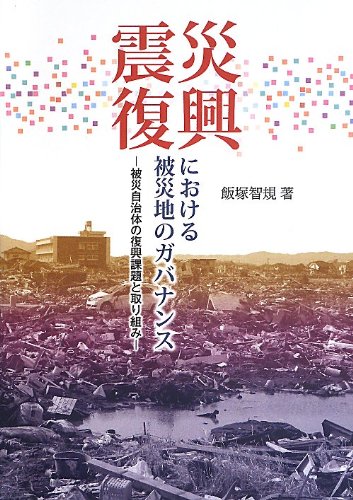3 0 0 0 OA 嗜好品摂取によって獲得できる心理学的効果の探索的検討
- 著者
- 横光 健吾 金井 嘉宏 松木 修平 平井 浩人 飯塚 智規 若狭 功未大 赤塚 智明 佐藤 健二 坂野 雄二
- 出版者
- 公益社団法人 日本心理学会
- 雑誌
- 心理学研究 (ISSN:00215236)
- 巻号頁・発行日
- vol.86, no.4, pp.354-360, 2015 (Released:2015-10-25)
- 参考文献数
- 23
- 被引用文献数
- 4 5
This study explores the psychological effects that Japanese people experience when consuming their “Shikohin”, such as alcohol, tea, coffee, and tobacco. We conducted a cross-sectional study among 542 people, from 20-to 69-year-old, who regularly consumed any one of “Shikohin” in Tokyo, Kanagawa, Saitama, and Chiba. The participants responded to an anonymous questionnaire concerning the consumption patterns of their “Shikohin” and the psychological effects that they experienced in taking in their “Shikohin”. Results obtained using the K-J methods showed three common psychological effects in each “Shikohin”. These effects included an increase in relaxation response, the promotion of social relationships, and an increase in positive mood. Our findings suggest that Japanese people may get some common effects through consumption of different “Shikohin”.
2 0 0 0 IR ユートピアから省かれる災害弱者
- 著者
- 飯塚 智規
- 出版者
- 城西大学現代政策学部
- 雑誌
- 城西現代政策研究 (ISSN:18819001)
- 巻号頁・発行日
- vol.15, no.1, pp.3-18, 2021-12
本稿は、何故、災害弱者が災害ユートピアから省かれてしまうのかを、弱者と非弱者との「違い」に着目して考察している。本稿で取り上げる災害弱者は、女性・障害者・外国人である。また災害ユートピアとは、見知らぬ人同士が友人になり、力を合わせて自分に求められる新しい役割を見出す共同体のことを意味する。しかし現実には、そうした災害ユートピアとは異なる、閉鎖的・非寛容的で同質性を求める共同体が「災害ユートピア」として出現する。そうした「災害ユートピア」の中で、女性・障害者・外国人が、どうして災害弱者になってしまうのか、また彼ら彼女らへ対してどのような対策や取組がなされてきたのかを見ていく。This paper examines why vulnerable people are excluded from the phenomena of" disaster utopia" following disasters, focusing on the difference between the vulnerable and non-vulnerable. An example of vulnerable people are women, persons with disabilities and foreigners. Disaster Utopia means a community in which strangers cooperate and work together to find new roles for themselves in times of adversity. The characteristics of disaster utopia are closing practices, non-tolerance, and homogeneity. However, the reality is that a different form of disaster utopia takes place in vulnerable groups. This paper examines how women, the disabled, and foreigners become vulnerable during times of disaster, and what support mechanisms are offered.特集:東日本大震災から10 年 災害を再考する~災害弱者・災害救助への注目 Rethinking Disasters, 10 Years Since the Great East Japan Earthquake ― Focusing on Vulnerable People and Disaster Relief / Special Feature
- 著者
- 飯塚 智規
- 出版者
- 関西法政治研究会
- 雑誌
- 法政治研究 (ISSN:21894124)
- 巻号頁・発行日
- vol.8, pp.63, 2022 (Released:2022-06-17)
1 0 0 0 OA 行政職員を対象とした防災研修についての研究 ―必要性・現状・内容―
- 著者
- 飯塚 智規
- 出版者
- 関西法政治研究会
- 雑誌
- 法政治研究 (ISSN:21894124)
- 巻号頁・発行日
- vol.7, pp.115, 2021 (Released:2021-06-01)
1 0 0 0 OA 市町村の機能的な災害対応のための体制構築に関する研究 ―意思決定・組織設計・研修―
- 著者
- 飯塚 智規
- 出版者
- 関西法政治研究会
- 雑誌
- 法政治研究 (ISSN:21894124)
- 巻号頁・発行日
- vol.6, pp.73, 2020 (Released:2020-06-01)
1 0 0 0 OA 嗜好品摂取によって獲得できる心理学的効果の探索的検討
- 著者
- 横光 健吾 金井 嘉宏 松木 修平 平井 浩人 飯塚 智規 若狭 功未大 赤塚 智明 佐藤 健二 坂野 雄二
- 出版者
- 公益社団法人 日本心理学会
- 雑誌
- 心理学研究 (ISSN:00215236)
- 巻号頁・発行日
- pp.86.14321, (Released:2015-09-15)
- 参考文献数
- 23
- 被引用文献数
- 5
This study explores the psychological effects that Japanese people experience when consuming their “Shikohin”, such as alcohol, tea, coffee, and tobacco. We conducted a cross-sectional study among 542 people, from 20-to 69-year-old, who regularly consumed any one of “Shikohin” in Tokyo, Kanagawa, Saitama, and Chiba. The participants responded to an anonymous questionnaire concerning the consumption patterns of their “Shikohin” and the psychological effects that they experienced in taking in their “Shikohin”. Results obtained using the K-J methods showed three common psychological effects in each “Shikohin”. These effects included an increase in relaxation response, the promotion of social relationships, and an increase in positive mood. Our findings suggest that Japanese people may get some common effects through consumption of different “Shikohin”.
1 0 0 0 嗜好品摂取によって獲得できる心理学的効果の探索的検討
- 著者
- 横光 健吾 金井 嘉宏 松木 修平 平井 浩人 飯塚 智規 若狭 功未大 赤塚 智明 佐藤 健二 坂野 雄二
- 出版者
- The Japanese Psychological Association
- 雑誌
- 心理学研究 (ISSN:00215236)
- 巻号頁・発行日
- vol.86, no.4, pp.354-360, 2015
- 被引用文献数
- 5
This study explores the psychological effects that Japanese people experience when consuming their "Shikohin", such as alcohol, tea, coffee, and tobacco. We conducted a cross-sectional study among 542 people, from 20-to 69-year-old, who regularly consumed any one of "Shikohin" in Tokyo, Kanagawa, Saitama, and Chiba. The participants responded to an anonymous questionnaire concerning the consumption patterns of their "Shikohin" and the psychological effects that they experienced in taking in their "Shikohin". Results obtained using the K-J methods showed three common psychological effects in each "Shikohin". These effects included an increase in relaxation response, the promotion of social relationships, and an increase in positive mood. Our findings suggest that Japanese people may get some common effects through consumption of different "Shikohin".



